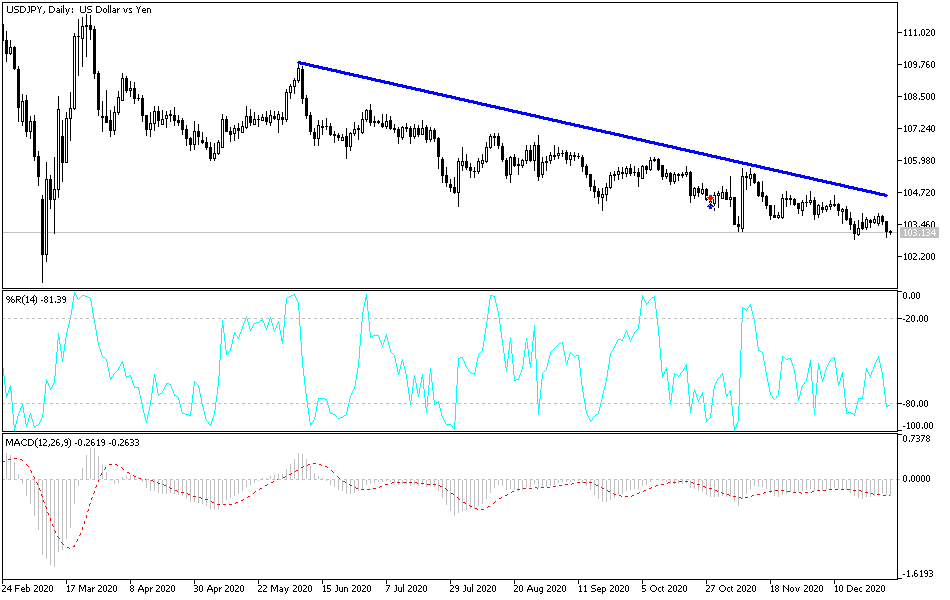The USD/JPY is about to close 2020 trading on a sharp decline, stable below the psychological support level at 103.00. During yesterday's trading session, it retreated to the 102.96 support. The USD's weakness continued, with increasing investors' risk appetite coinciding with the announcement of the launch of more coronavirus vaccines, which gave investors hopes for a global economic recovery from COVID-19.
The number of Americans who signed home purchase contracts decreased last month, but remained at a record high for November when the traditionally seasonal slowdown seeps into the real estate market. The National Association of Realtors said its Pending Sales Index fell 2.6% to 125.7 in November, down from October's revised reading of 129.1. It is the third consecutive monthly decline.
Contract signatures are a barometer of final purchases over the next two months, so yesterday's report may outline what could be a strong winter for the housing market. Contract signing is still 16.4% ahead of last year, thanks to the massive summer boom that followed the fading during the spring due to the coronavirus outbreak. Contract signatures declined in all four regions - the Northeast, South, Midwest and West - from October to November, but rose more than two numbers year-on-year until last month.
Historically, low interest rates attract potential buyers into the market, but house prices have rallied significantly in the past year as supply remains near all-time lows. US house prices jumped 7.9% in October, the most since June 2014, according to the S&P CoreLogic Case-Shiller 20 City Home Price Index released Tuesday.
Mortgage giant Freddie Mac reported last week that the average interest rate on a 30-year fixed-rate home loan has remained at a record low of 2.66%.
The coronavirus has escalated in Tokyo and may explode at any time, according to State Governor Yoriko Koike on Tuesday, as the Japanese capital reported 944 new cases, the second highest since the beginning of the epidemic. "I must say the situation is very dangerous," she said, urging residents to stay home and avoid parties, travel and shrine visits during the New Year holidays.
She also said that her requests for people to stay at home and close drinking places early is a last attempt to slow the infection without the need for another emergency. Japan was under a non-binding seven-week state of emergency in the spring when non-core businesses were required to close and people were asked to work from home. The new cases in Tokyo on Tuesday were only five cases less than the record on Saturday of 949, bringing the total cases in the capital to 58,840. Japan added 3,601 new cases on Monday, bringing the national total to 226,596, including 3,349 deaths.
According to the Ministry of Health, nearly three-quarters of the 4,000 hospital beds currently available in Tokyo have been filled and could be completely full within two weeks unless people share a sense of crisis and scale back their activities immediately, said experts of the Tokyo Coronavirus Task Force. Koike said the New Year holidays will be a crucial turning point that determines whether the infection can be stopped. She said: "The actions of each of us determine our fate in the coming year."
Technical analysis of the pair:
There is no change to my technical view of the USD/JPY performance, as the general trend is still bearish. Stability below the psychological support at 103.00 supports the move towards stronger support levels, at the same time pushing the technical indicators towards oversold levels. The closest support levels for the pair are currently at 102.75, 102.10 and 101.55, respectively. On the upside, there will be no shift in the current bearish outlook without the currency pair breaking through the 106.00 resistance. So far, investors’ risk appetite is still strongly influencing the performance of the US currency and today it will interact with the weekly US jobless claims announcement.


